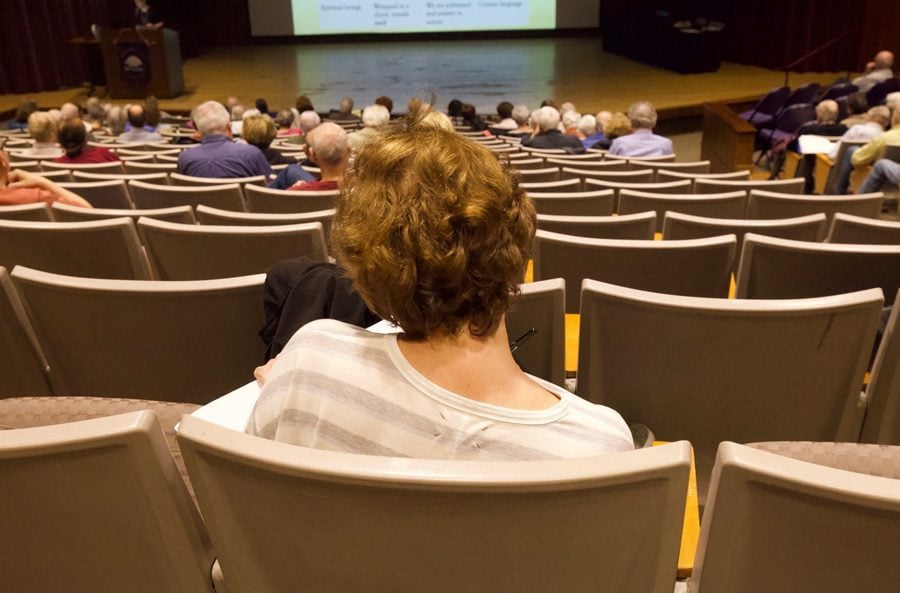Continuing Education Program inspires students to enrich knowledge
Daily File Photo by Aaron Wang
A student listens to Dr. Claire Sufrin lecture as a part of the Continuing Education program from the last school year. The program offers courses in a variety of fields to the public.
October 22, 2019
Each quarter, the Alumnae of Northwestern University offers four non-credit classes taught by NU professors through its Continuing Education program. Continuing Education enrolls approximately 3,000 students each year who can take the classes, each of which occur for two hours once a week.
The Continuing Education board, founded more than 100 years ago, is run solely by women who have coordinated this successful program for 51 years. Debby Hudson (Weinberg ’75, SESP ’93), Continuing Education’s committee co-chair, has been coordinating classes for about 12 years. As a coordinator, she has many roles, one of which is helping to decide who will teach what classes. Course topics range from science to drama, music and more.
Hudson said for many older students, especially those who no longer live independently, the busy backdrop of Northwestern students provides an energizing atmosphere and experience.
Janice Wessinger Bartlett (SESP ’54) said she has been taking classes with the Continuing Education program for over 40 years and has seen the program expand. Her favorite classes are the music classes and literature classes.
“I find it very intellectually stimulating to have all different ideas and topics come up that I can enjoy,” she said.
Wessinger Bartlett said she and a group of students were so inspired by a literature class they took several years ago that they started a book club that is still active today.
Courses offered in the program are often courses that Northwestern professors have previously taught to undergraduate students. Hudson said she was a religion major at Northwestern and has an interest in history, so she often looks for courses in those fields.
There is an effort made each year to offer courses in many different fields. This quarter, for example, there is a course on the African-American Experience, which prompted the board to consider how professors in different fields would teach the topic from different perspectives, she added.
Some of the most popular classes are the multi-professor science classes the program offers, which bring in undergraduate and medical school professors to lecture on topics like artificial intelligence or the brain.
“It’s a very good experience for the professors too,” Hudson said. ”They have people who are very engaged in what they’re teaching and some of them have read a lot and experienced a lot and bring a lot of content knowledge already to the course.”
The board uses the tuition funds for the program for costs — including professor salaries and bus transportation to Norris. Any leftover funds are put towards grants and scholarships for Northwestern students and faculty. In this way, the program funding loops in a full circle.
Mary Poole (Communication ‘75, ‘87) was the first graduate school woman to receive a grant from the alumnae association to complete her Ph.D. at Northwestern. Now, she is one of three professors teaching a class this fall in Continuing Education called “3 Actors, 9 Plays” in which each professor chooses three plays to present and discuss with students.
Poole said she has enjoyed the opportunity to teach the Continuing Education students and as she prepares for retirement at the end of this year, she said she would love to do anything to continue to help the alumnae association.
“It’s a very different type of student — their reasons for being in the classroom is very different, their knowledge they bring to the classroom is very different than a 20-year-old brings into the classroom, and I enjoyed myself tremendously,” Poole said.
Email: [email protected]


